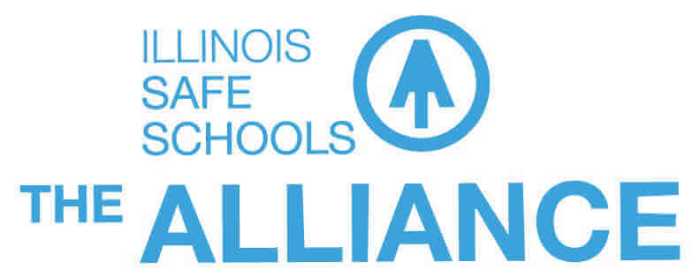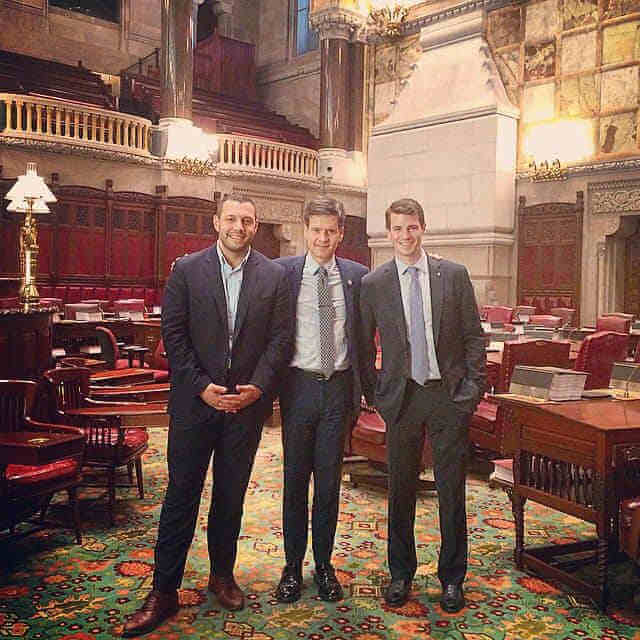Robert Ingersoll and Curt Freed prevailed in their suit against Barronelle Stutzman, proprietor of Arlene’s Flowers, Inc., at the Washington State Supreme Court. | ACLU OF WASHINGTON
Continuing an unbroken string of appellate rulings finding that businesses cannot refuse to supply goods or services for same-sex marriages in jurisdictions that ban sexual orientation discrimination, the nine members of the Washington State Supreme Court have unanimously ruled that a flower shop acted illegally in denying a gay couple floral arrangements for their wedding.
The February 16 ruling in Robert Ingersoll and Curt Freed’s suit against the florist found that Barronelle Stutzman, proprietor of Arlene’s Flowers, Inc., violated the Washington Law Against Discrimination (WLAD) and the state’s Consumer Protection Act, and that Stutzman had no constitutional right to do so on the basis of her religious beliefs.
This ruling follows a series of losses by businesses that sought to rely on religious objections to refuse wedding-related services – in cases involving a photographer in New Mexico, a baker in Colorado, and a farm venue for weddings in upstate New York.
Like photographer, baker, farm wedding venue before her, Barronelle Stutzman’s religious freedom claim rejected as spurious
So far, no final court decision has ruled in favor of a business claiming a right to discriminate, either under the federal or a state constitution or under a state’s religious freedom statute.
Washington State does not have the sort of religious freedom law adopted in many states in recent years, so Stutzman’s case came down to two questions: whether her refusal of services violated the public accommodations and consumer protection statutes and whether she was privileged to withhold her services by the US Constitution’s First Amendment or the equivalent provision of the Washington State Constitution.
Ingersoll and Freed, partners in “a committed, romantic relationship” for several years, according to Justice Sheryl Gordon McCloud’s opinion, had been regular customers of Arlene’s Flowers, spending by their estimate as much as $1,000 in total at the shop. After same-sex marriage became legal in Washington in 2012, Freed and Ingersoll planned a September 2013 wedding, “complete with a dinner or reception, a photographer, a caterer, a wedding cake, and flowers.” Ingersoll naturally went to Arlene’s Flowers to make arrangements, anticipating no problems because Stutzman knew him and Freed, knew they were gay, and had dealt with them many times. They couple considered Arlene’s Flowers to be “their florist.”
So it was a big surprise when Stutzman told Ingersoll that she could not do the flowers for their wedding because of “her relationship to Jesus Christ.” The story quickly got media play, inspiring Washington Attorney General Bob Ferguson to initiate litigation against the Stutzman and her business, and Ingersoll and Freed filed their own complaint. The cases were combined in Benton County Superior Court, where the trial judge granted summary judgment against Stutzman.
The analysis by the court will be familiar to anybody who has been following this issue as it has unfolded in parallel with the advance of marriage equality. Courts have generally rejected the argument made by companies refusing to do business with same-sex couples in connection with their marriage that their actions are not sexual orientation discrimination because their refusal has to do with “conduct” (a wedding) rather than “status” (sexual orientation). The Washington court did likewise, in response to argument from lawyers from Alliance Defending Freedom, an anti-LGBT legal group that has been involved in other similar cases and is petitioning the Supreme Court to review the Colorado baker case.
As a result, the major focus of the case was not on whether Stutzman violated the state’s laws, but rather on whether she enjoyed constitutional protection in doing so as a result of her freedom of religion, speech, or association.
Most civil rights laws include provisions exempting religious institutions and their clergy from complying to the extent their doctrines would be violated, but the exemptions usually do not extend to private, for-profit businesses.
The Washington high court rejected Stutzman’s argument that her floral arrangements were the kind of artistic creations entitled to free speech protection, or that requiring her to design and supply floral arrangements would burden her freedom of association. The court conceded that it would burden her free exercise of religion, but found that the state’s compelling interest in protecting all its residents from discrimination in places of public accommodation clearly outweighed the incidental burden on religion.
“As applied in this case,” wrote Justice Gordon McCloud, “the WLAD does not compel speech or association. And assuming that it substantially burdens Stutzman’s religious free exercise, the WLAD does not violate her right to religious exercise under either the First Amendment or [the Washington Constitution] because it is a neutral, generally applicable law that serves our state government’s compelling interest in eradicating discrimination in public accommodations.”
Stutzman argued that her refusal to do the flowers for the couple’s wedding was not a serious problem because she supplied Ingersoll with the names of other florists who would readily do so, and in fact after this case got publicity several florists contacted the couple and volunteered to provide flowers for their wedding.
The court said that was not really the issue. It wasn’t just about access to flowers. Instead, it was about the violation of civil rights stemming from a denial of services because the customers were a gay couple. Indeed, in her deposition, Stutzman conceded she would happily supply flowers for a Muslim wedding or a wedding for atheists, making clear that her objections here focused on the fact that it was for a “gay wedding,” not on “her relationship to Jesus Christ.” It was not relevant that she claimed she was not homophobic and happily sold flowers to Ingersoll and Freed when it was not for their wedding.
The timing of this decision is particularly interesting, because the Supreme Court was scheduled to discuss whether to grant review of the Colorado baker case on February 17, having listed it at two of the its prior conferences and having just recently sent for and received the full record from the state courts.
The American Civil Liberties Union of Washington represented Ingersoll and Freed in this case. A spokesperson for Alliance Defending Freedom announced that the group would petition the Supreme Court to review this case as well as the Colorado baker case.



































